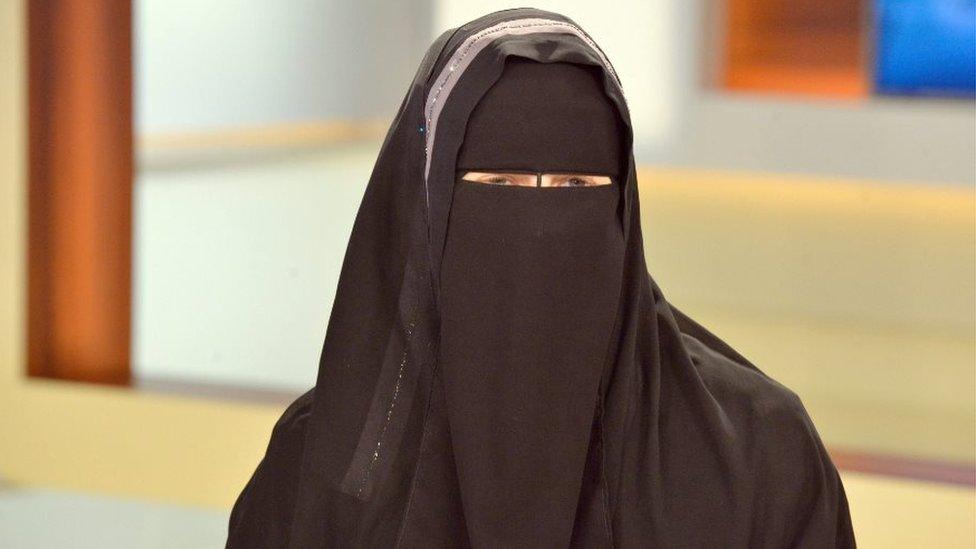Austria could see election 'in autumn' after coalition ends
- Published
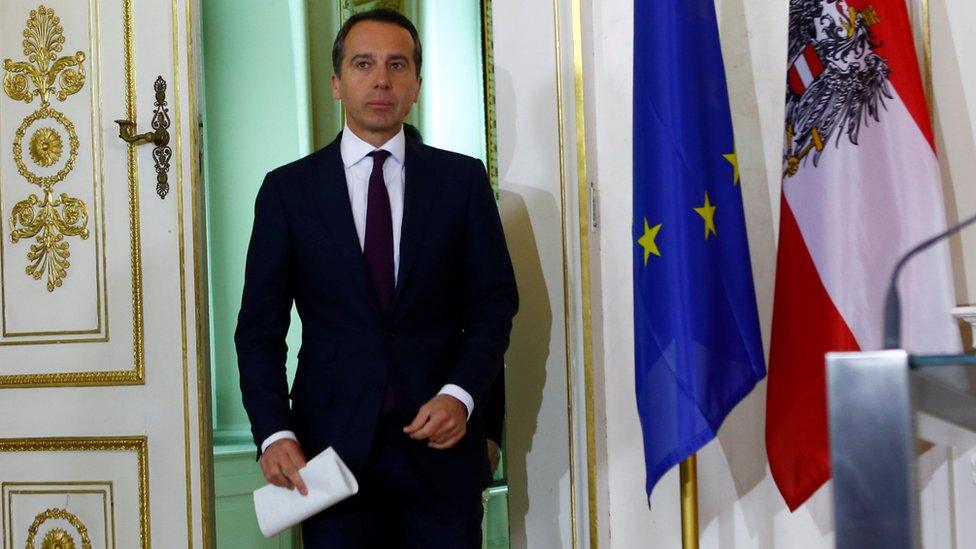
Mr Kern said that the People's Party "put an end to this coalition live on television"
Austrian Chancellor Christian Kern has said he expects an early election "in the autumn" after his coalition partners abruptly ended their alliance.
It comes after months of disagreements between Mr Kern's Social Democrats and the People's Party on policy reform.
Foreign Minister Sebastian Kurz, of the People's Party, said he would suggest a snap poll to the chancellor on Monday.
An early election will give Austria's far-right Freedom Party another chance of entering national government.
"In my view, the first step is a joint proposal [from the former coalition partners] for early elections," Mr Kurz said, after being voted head of the centre-right People's Party.
The coalition was thrown into doubt when the People's Party's then leader, Reinhold Mitterlehner, quit last week.
"It has to be accepted that the [People's Party] put an end to this coalition on Friday live on television. They made it quite clear that they don't want [to be in coalition] any more," Chancellor Kern said.
"I have difficulty picturing a scenario in which we could put together a stable minority government," Mr Kern added.
Mr Kurz had said earlier that he would only be prepared to lead the People's Party if the position came with sweeping powers on issues including staffing.
If the election goes ahead it could see the Freedom Party, which is currently riding high in opinion polls, enter or even lead a new coalition government.
The coalition between the Social Democrats and the People's Party was meant to govern until September 2018. The two parties have governed Austria for decades, either alone or in coalition.
Last year, Freedom Party candidate Norbert Hofer, who campaigned on an anti-immigration platform and said that Austria could follow Britain's vote to leave the EU, came close to being elected to the post of Austrian president.
- Published23 May 2016
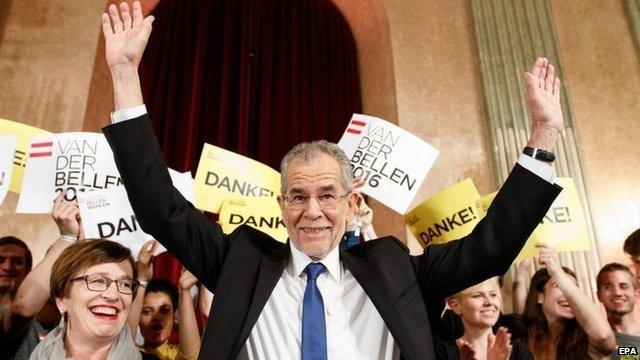
- Published4 December 2016
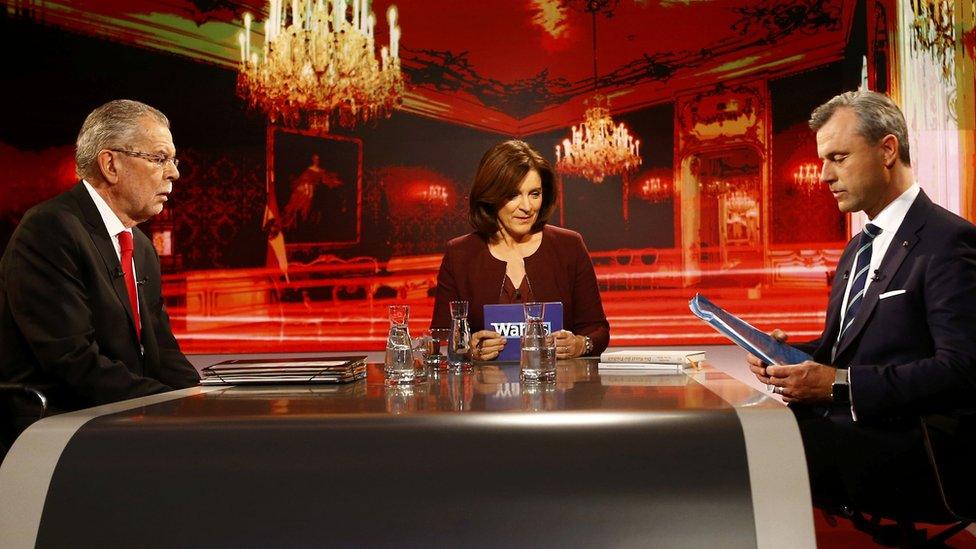
- Published12 January 2017
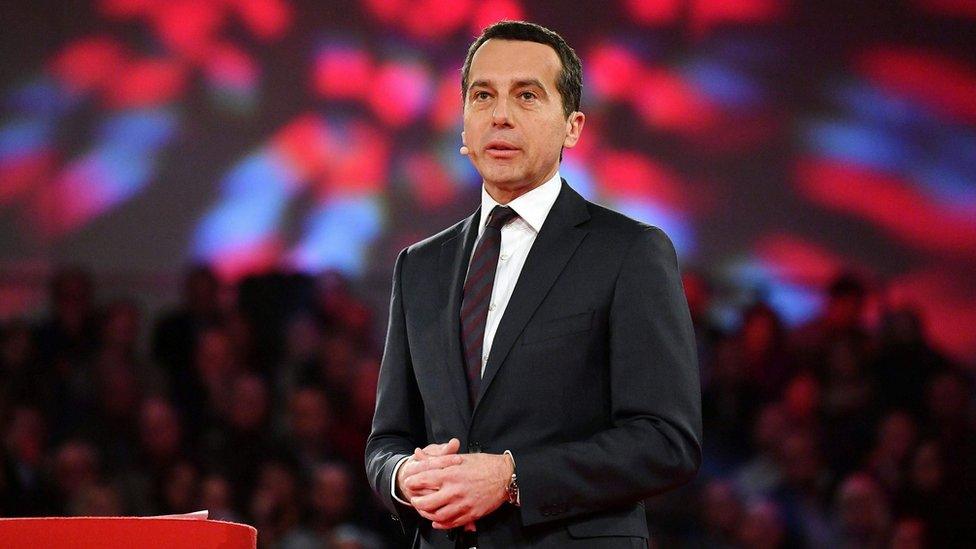
- Published31 January 2017
